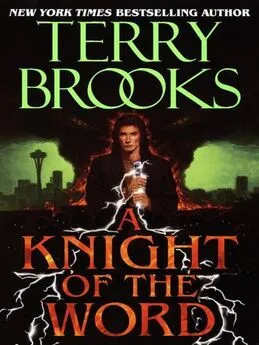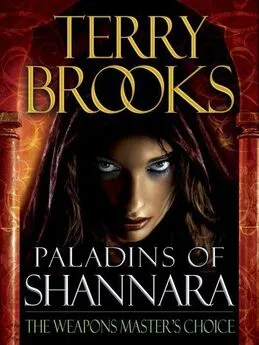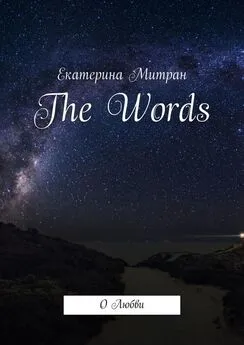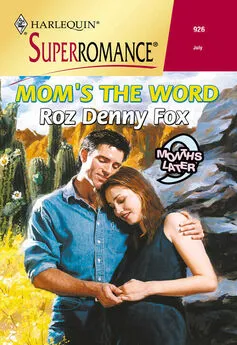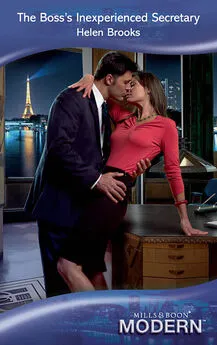Terry Brooks - A Knight of the Word
- Название:A Knight of the Word
- Автор:
- Жанр:
- Издательство:неизвестно
- Год:неизвестен
- ISBN:нет данных
- Рейтинг:
- Избранное:Добавить в избранное
-
Отзывы:
-
Ваша оценка:
Terry Brooks - A Knight of the Word краткое содержание
Then, after decades of service to the Word, an unspeakable act of violence shatters John Ross’s weary faith. Haunted by guilt, he turns his back on his dread gift, settling down to build a normal life, untroubled by demons and nightmares.
But a fallen Knight makes a tempting prize for the Void, which could bend the Knight’s magic to its own evil ends. And once the demons on Ross’s trail track him to Seattle, neither he nor anyone close to him will be safe. His only hope is Nest Freemark, a college student who wields an extraordinary magic all her own. Five years earlier, Ross had aided Nest when the future of humanity rested upon her choice between Word and Void. Now Nest must return the favor. She must restore Ross’s faith, or his life—and hers—will be forfeit…
A Knight of the Word - читать онлайн бесплатно полную версию (весь текст целиком)
Интервал:
Закладка:
But the feelings that fill Ross are unfamiliar ones. They are not of
frustration or anger, not of despair or sadness, as they have been each time before.
His feelings now are dull and empty, devoid of anything but irritation and a faint boredom. He stands with a group of the city's survivors, but be has no regard for them either. Rather, he is a shell, armoured and invulnerable, but emotionless. He has no idea bow he became this way, but it is a transcending experience to realize it has happened. He is no longer a Knight of the Word; he is something else entirely. The humans he stands with are not a part of him. They do not meet his gaze as he looks over at them speculatively. They cower in his presence and huddle before him. They are frightened of him. They are terrified.
Then the old man approaches and whispers that be knows him, that he remembers him from years earlier His hollow eyed gaze is vacant, and his voice is flat and toneless. He looks and speaks as if be is disconnected from his body. He repeats the familiar words. You were there, in the Emerald City! You killed the Wizard of Oz! It was Halloween night, and you were wearing a mask of death! They were celebrating his life, and you killed him!
He shoves the old man away roughly. the old man collapses in a heap and begins to sob. He lies helpless in the dirt and rainwater, his ragged clothes and beard matted with mud, his frail body shaking.
Ross looks away. He knows the words the old man speaks are true, but he does not care. He has walled away all guilt long since, and killing no longer means anything to him.
He realizes in that moment that he is no longer part of the humans clustered at bis feet. He has shed his humanity; he has left it behind him in a past he can barely remember.
Suddenly, he understands why the humans look at him as they do.
He is the enemy who has come to destroy them.
Ross and Stef walked slowly back along First Avenue after leaving Umberto's, arms linked, shoulders hunched against the cold. The air was still hazy and damp and the sky still gray, but there was no rain yet. The street lamps of Pioneer Square blazed above them, casting their shadows on the sidewalk as they passed, dark human patterns lengthening and then fading with each bright new circle.
The dream had come again last night, for the first time in several weeks, and Ross was still wrestling with its implications. In this latest version of the future, Simon Lawrence was still dead, and Ross was still his killer. But now Ross was one of the bad guys, no longer a Knight of the Word, no longer even a passive observer as he had been every time the dream came to him before. He was some sort of demon clone, a creature of the Void and only barely recognizable as having ever been human.
He frowned into the upturned collar of his coat. It was ridiculous, ludicrous to think that any of this could ever come to pass.
So why was he having this dream?
Why was he being plagued with visions of a future he would never let happen?
`The state legislature is going to pass a bill before the end of the week that will cut back on state funding for welfare recipients to match what the federal government has already done in cutting back its funding to the state' Stef's voice was soft and detached in the gloom. `Maybe that's what has got Simon so upset'
`Well, by all means, let's put more people back on the streets' Ross shook his head, thinking of other things.
`Welfare encourages people not to work, John. You know that. You hear it all the time. Cutting off their aid will force them to get out there and get a job'
`Good thing it's all so simple. We can just ignore the culture of poverty. We can just pretend that poor people are just rich people without money. We can tell ourselves that educational, social, and cultural opportunities are the same for everyone. We can ignore the statistics on domestic violence and teen pregnancy and rate of exposure to crime and disease and family stability. Cut off welfare and put 'em to work. I don't know why anyone didn't think of it before. We can have everyone off the street and working by the end of the month, I bet'
`Yep. Then we can tackle a cure for cancer and get that out of the way, too' She snuggled her face into his shoulder, her dark hair spilling over him like silk.
`I liked our dinner,' he ventured, trying to take the edge off his frustration.
She nodded into his coat. `Good. I liked it, too'
They rounded the corner of Main at Elliott Bay Book Company and started for home. Occidental Park sprawled ahead of them, empty of life, watched over by the wooden totems, spectral sentinels in the gloom. The homeless had moved on to warmer spots for the night, abandoning their daytime haunt. Some would find a bed in one of the shelters. Some would make their bed on the streets. Some would wake up in the morning. Some would not.
`There are just not enough of us,' Ross said quietly.
She lifted her head to look at him. `Not enough of who?'
`Not of who. Of what. I misspoke. Not enough shelters for the homeless. Not enough schools for displaced children. Not enough food banks. Not enough care facilities. Not enough churches working with the needy. Not enough charities. Not enough programs or funding or answers. Not enough of anything:
She nodded. `There's a lot of competition for people's money and time, John. The choices aren't always easy.'
`Maybe it would be easier if people remembered there's a lot of competition for their souls, as well'
She stared hard at him for a moment. `Then everyone should be able to figure out what to do, shouldn't they?'
They crossed Main to Waterfall Park, peering into the blackness where the sound of rushing water welled up and reverberated off the brick walls. Amid the cluster of rocks and trees and garden tables, shadows shifted with barely perceptible movements. Ross thought he caught a glimpse of lantern eyes peering out at him. He didn't see the feeders much anymore–only brief glimpses. It bothered him sometimes that he couldn't see them better. He had wanted to remove himself from their world, and it didn't help knowing they were there and not being able to see them.
It reminded him of something Owain Glyndwr had asked of him.
Do you think you can ever be as you were?
He found himself thinking of the dream again, of the way he had appeared in it, of the way it made him feel. He might not ever be as he was, but at least he could keep himself from being like that. He could manage that much, couldn't he?
He stared into the shadows in silence, Stefanie clinging to his arm, and dared the things that lurked within to come into the light. It seemed to him as he did so that he could feel them daring him, in turn, to come into the dark.
CHAPTER 10
Even though its hunger had become all–consuming, the demon waited until after midnight to hunt.
It crept from its lair as silent as the death that awaited its victims and slipped out onto the empty streets of Pioneer Square. The weeknight city had closed its eyes early, and even the bars and restaurants had shuttered their doors and disked off their lights. The air was damp and heavy with mist and the beginnings of a fresh rain, and the moisture glistened on the concrete in a satiny sheen. Cars eased past in ones and twos, carrying their occupants to home and bed, strays following in the wake of the early evening rush. The demon watched from the shadows dose by Occidental Park, wary of being seen. But the park and sidewalks and streets were empty and still. The demon was alone.
It crept from its hiding place in human form, standing upright, maintaining its guise as it made its way to the place where the hunt would begin. It wore running shoes and sweats to mask the sound of its passing, keeping to the shadows as much as possible, sliding along the walls of the darkened buildings, across the shadowed stretches of the park, and through the blackened tunnels of the alleys and walkways. The homeless who spent their days in the park had all gone elsewhere, acid the Indian totems loomed above the empty stone :spaces like hunters in search of prey, eyes fearsome and staring, beaks and talons at the ready.
But the demon's hunt was not far food.. Its hunger was of a different sort. Its hunger was more primal and less easily understood. The demon hunted because it needed to kill. It hunted to feel the struggles of its victims as it rent their flesh, cracked their bones, and spilled their blood. It hunted to experience that exquisite moment of fulfillment when its efforts claimed another human life–that last shudder of consciousness, that final exhalation of breath, that concluding gasp as death arrived. The demon's need for killing humans was indigenous to its makeup. It had been human itself once, long ago, and to continue to be what it was, it was necessary for it to keep killing its human self over and over again. It accomplished this through the killing of others. Its own humanity was drowned completely in the madness that drove it, but it was necessary that it pretend at being human so that it could move freely among its victims, and there was danger in this. Killing kept the pretense from ever threatening to become even a momentary reality.
At the corner of First Avenue and Yesler, the demon paused a final time in the shadows to look about. Seeing neither cars nor people approaching, it slipped quickly across First to the line of old doorways and basement windows that fronted the street, and hunkered down beside a set of concrete steps that led into a kite and banner shop. Again, it paused to look about and listen. Again, it saw and heard nothing.
Scooting forward like a crab, it paused in front of an old, wood–frame basement window with its glass painted out, levered the window open with practiced ease, slithered through the opening into the darkness beyond, and was gone.
Inside, it dropped softly to the basement floor and waited for its eyes to adjust. It took only a moment, for the demon's sight was as keen in darkness as in light. It saw with all its senses, unlike the human it had once been, unlike the humans it hunted. It despised the weaknesses of flesh and blood and bone it had long ago discarded. It despised the humanity that it had shed like a snake's skin. It was not burdened by moral codes or emotional balance or innate sensibility or anything even approaching responsibility. The demon functioned in its service to the Void without any restrictions save one–to survive. It did not question that it served the Void; it did so because it could not conceive of any other way to be and because the Void's interests were a perfect fit with its own. The demons purpose in life was to destroy the humans of whom it had once been part. Its purpose was to wipe them from the face of the earth. That it served the Void in doing so seemed mostly chance.
It stood motionless in the darkness for a long moment, then began to strip off its clothes. It would hunt better once it had transformed. Its human guise was uncomfortable and restrictive, and it served only to remind the demon of the shell it had been trapped inside far so many years. All demons were mutable and, given time, could became whatever they chose. But this demon was particularly adept. It could change farms effortlessly, which was not usually the case. Most demons were required to keep to the form they adopted because it took so long to build another. But this demon was different. It could change forms with the speed of a chameleon changing colors, rebuilding itself in moments. Its ability had served it well as a creature of the Void. It specialized in ferreting out and subverting the mare powerful servants of the Word. It had destroyed many of them. It was working now at destroying John Ross.
Читать дальшеИнтервал:
Закладка:
